“April 7th, when thousands of people took to the streets to demand freedom and democracy and changed the course of our history, when thousands of people took to the streets to demand freedom and democracy, will never be an ordinary day. It made us better citizens. More involved, more courageous, more active.”
This message came from Maia Sandu, the President of the Republic of Moldova today, April 7th, the 13th anniversary of the events of the same date in 2009, when the protest of thousands of young people, dissatisfied with the election results turned into an aggressive demonstration, resulting in hundreds of young people detained and maimed in police custody, but also with at least three deaths among protesters.
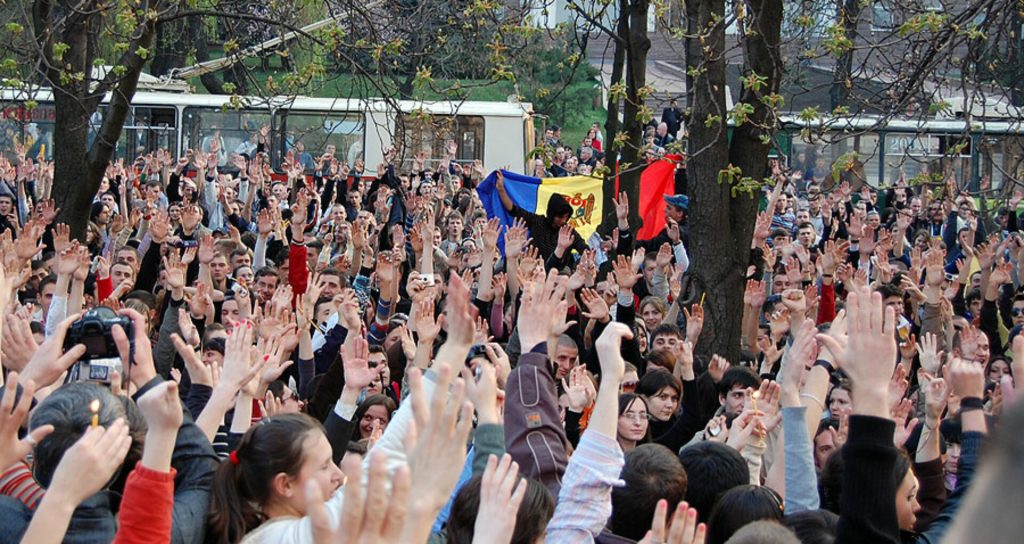
Thirteen years ago, the protests in Chisinau, which started on April 6th, 2009 and which were called by the police ”a manifesto of the citizens” regarding the results of the parliamentary elections in the Republic of Moldova held on April 5th. What actually led to the protests was the announcement of the preliminary results, giving almost 50% of the votes to the Party of Communists of the Republic of Moldova.
On April 7th, 2009, more than 30,000 opposition protesters took to the streets of Chisinau to protest against the communists’ victory in the elections, demanding a re-election. Shortly, the demonstrators stormed the Parliament building and the Presidency building and set it on fire.
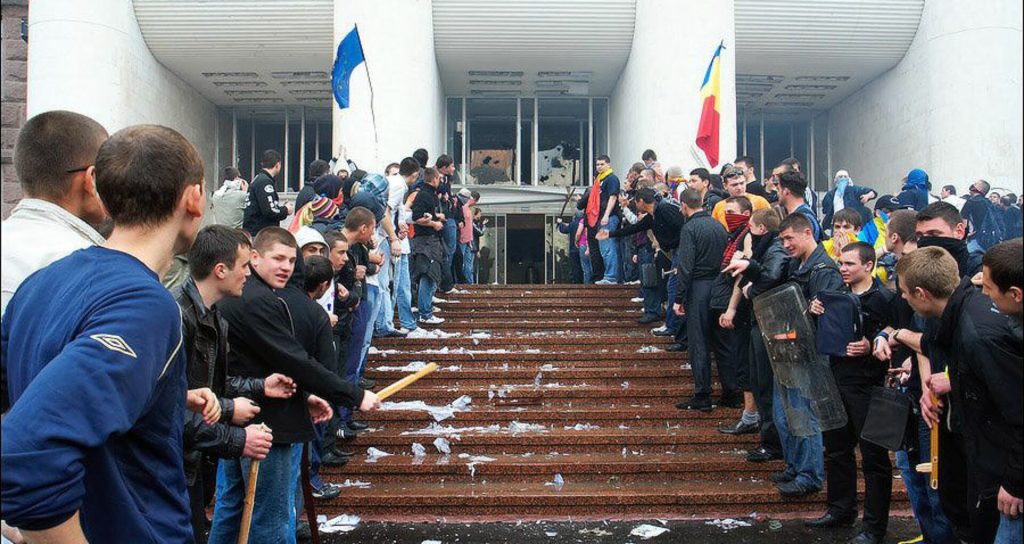
Due to the suspicious passivity of the police, the protesters managed to enter the Presidency by forcing the door and breaking the windows of the offices where they stole important state documents that were later burned, furniture and computers. People who entered the Parliament building threw some of the furniture in the street and set it on fire.
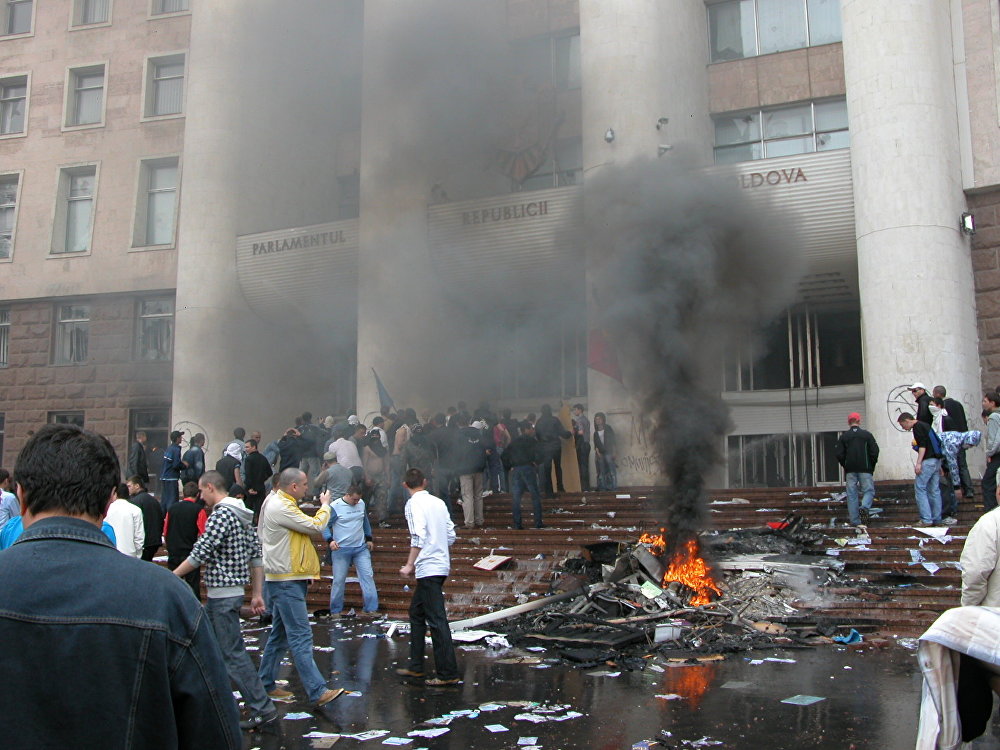
The capital’s police intervened, using water cannons and tear gas. In response, the protesters responded to the police action by throwing stones at them. During the demonstrations, some of the protesters waved Romanian flags, as well as hoisted the flag of Romania and the European Union on the buildings of the Parliament and the Presidency.
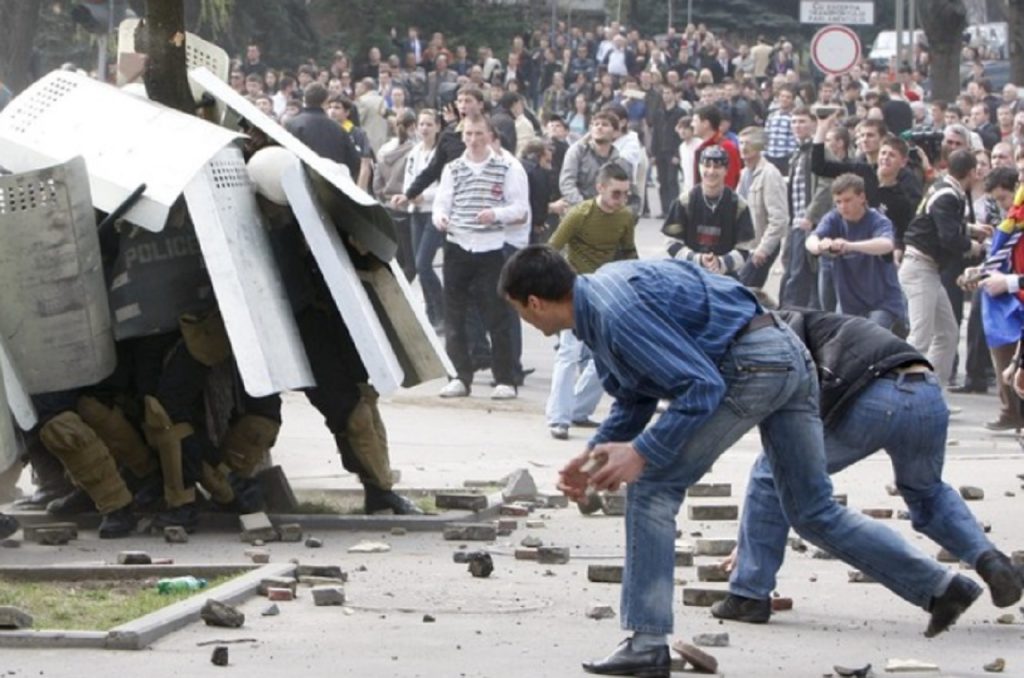
The then President of the Parliament, Marian Lupu, accused an attempted coup d’etat, suggesting that it was orchestrated by certain organizations in Romania. Opposition party leaders have called for more violence, urging state authorities not to implicate the opposition in the violence, saying they were not responsible for the April 7th actions. The opposition began negotiations with the government, but no agreement was reached, and then-President Vladimir Voronin continued to accuse the organizers of attempting a coup, saying he had strong evidence that in the crowd were fascist groups of Romanian origin.
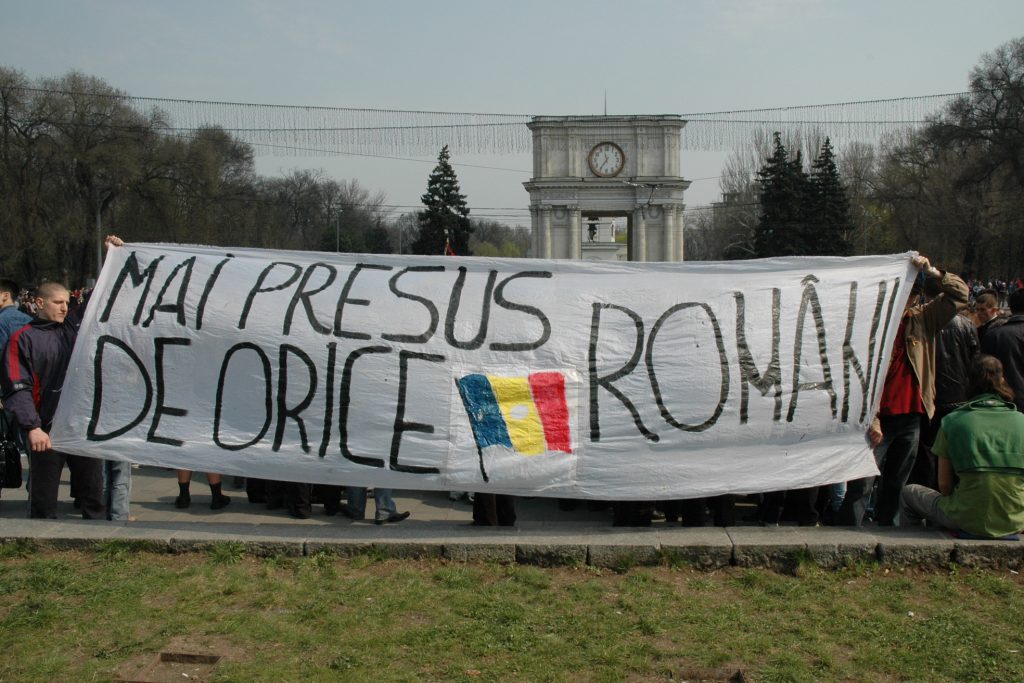
During the day, all administrative units were disconnected from the internet, so that ministry workers were “protected from the news of the protest.” Authorities feared that ministers could take to the streets en masse or cooperate with protesters to open state institutions. At the same time, no page of the online press in the Republic of Moldova could be accessed, and the mobile phone network was blocked.
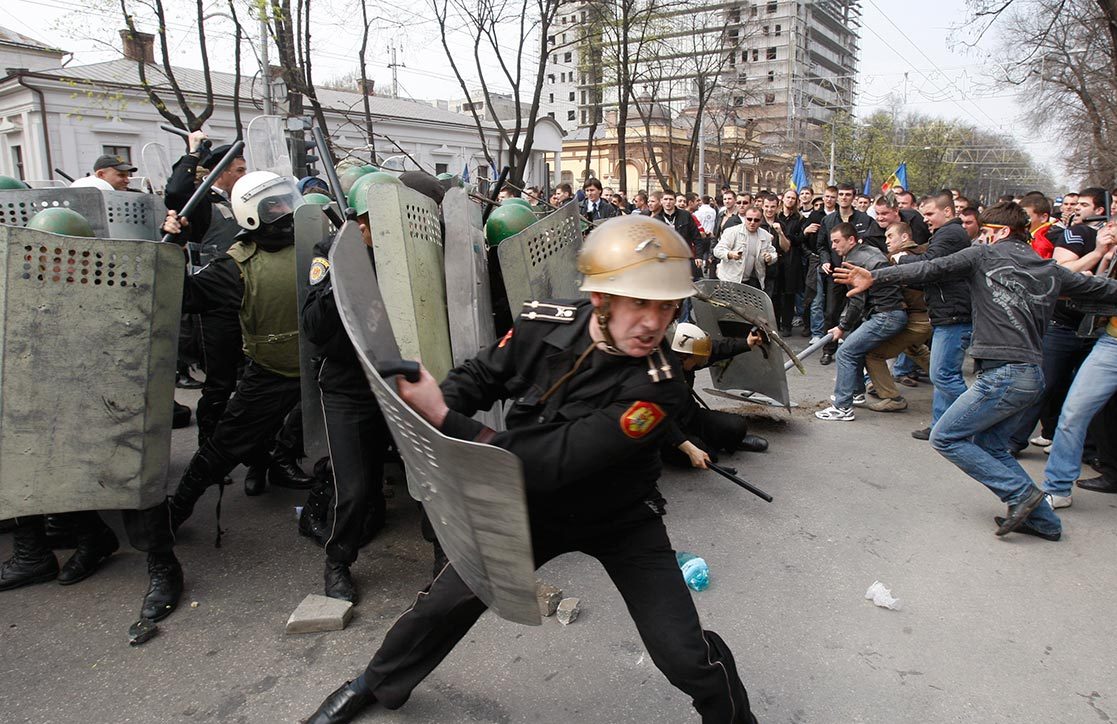
During the night of April 7th to 8th, the police used weapons with blind bullets and arrested 193 students according to official data, although unofficially there were many more people.
Immediately after the protests calmed down, in the days immediately following the violence, the protests took place peacefully in the Grand National Assembly Square. Moldovan journalists discovered several suspicious clues about the violent protests in Chisinau: Romania and the EU on the Presidency building were assisted by uniformed police officers, the premature withdrawal of police forces from protesters and the passivity of firefighters in extinguishing the fire in Parliament.
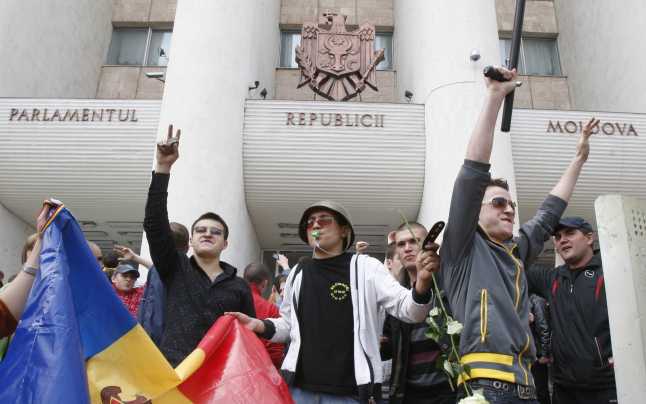
On April 8th, opposition leaders dissociated themselves from the acts of vandalism and destruction in Chisinau, believing that the challenges were implemented and organized by the communists to divert attention from election fraud. It was said that law enforcement allowed the provocateurs to act. In connection with this, the opposition in Chisinau issued several press statements on April 9th in which it reiterated the accusations that the communist power was guilty of provoking social unrest in Moldova.
On April 8th, a National Salvation Council (CSN) was set up. It was led by the writer Nicolae Dabija. The CSN includes representatives of Moldovan students, members of civil society and no politicians.
Following the protests, 3 victims were registered – Valeriu Boboc, Eugen Țapu and Ion Țîbuleac, according to known data, and many people were ill-treated in the police inspectorates.
”The crimes of April 7th, 2009, have been ignored for many years, challenging people’s patience. However, the time will come,” Maia Sandu assured her citizens.


